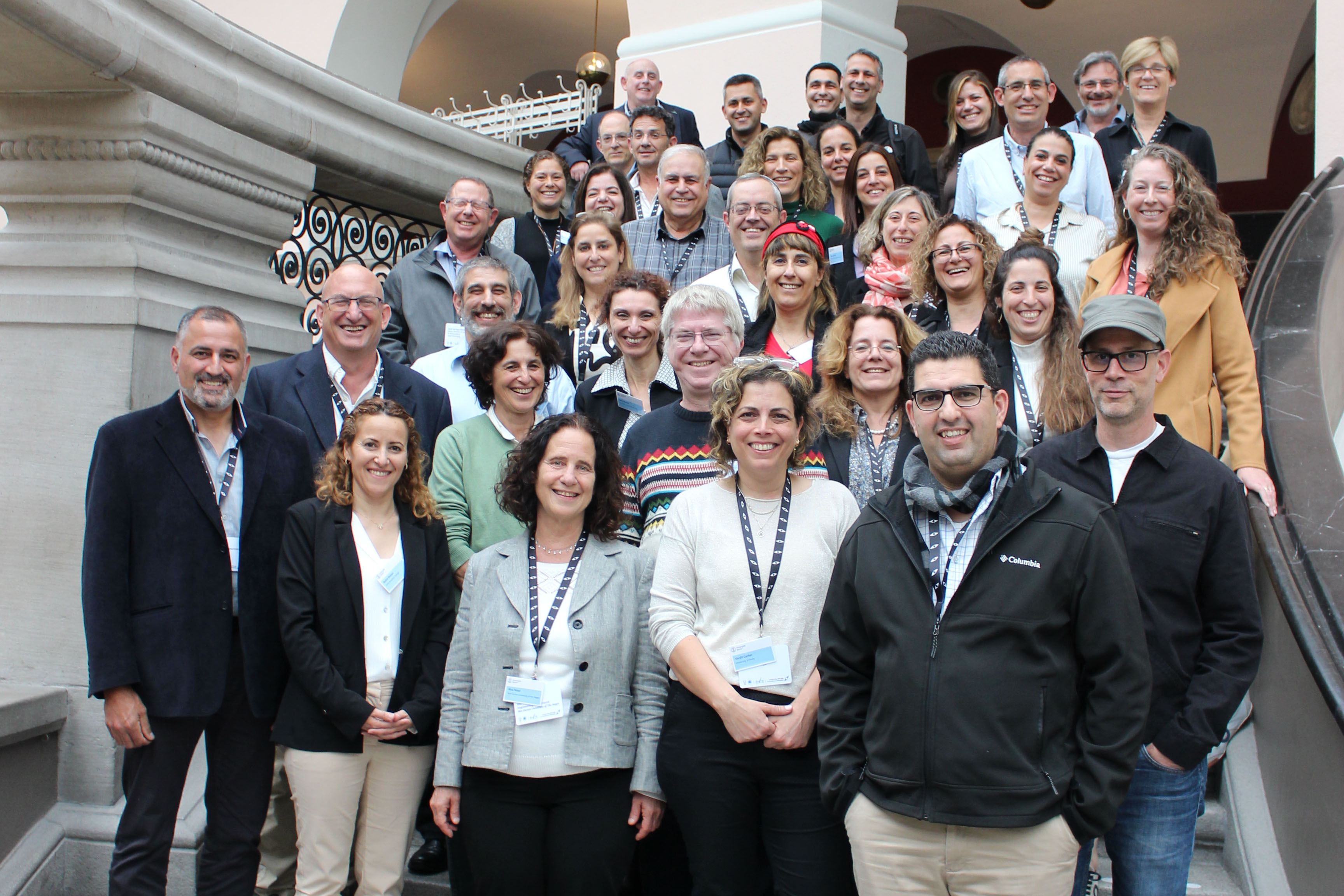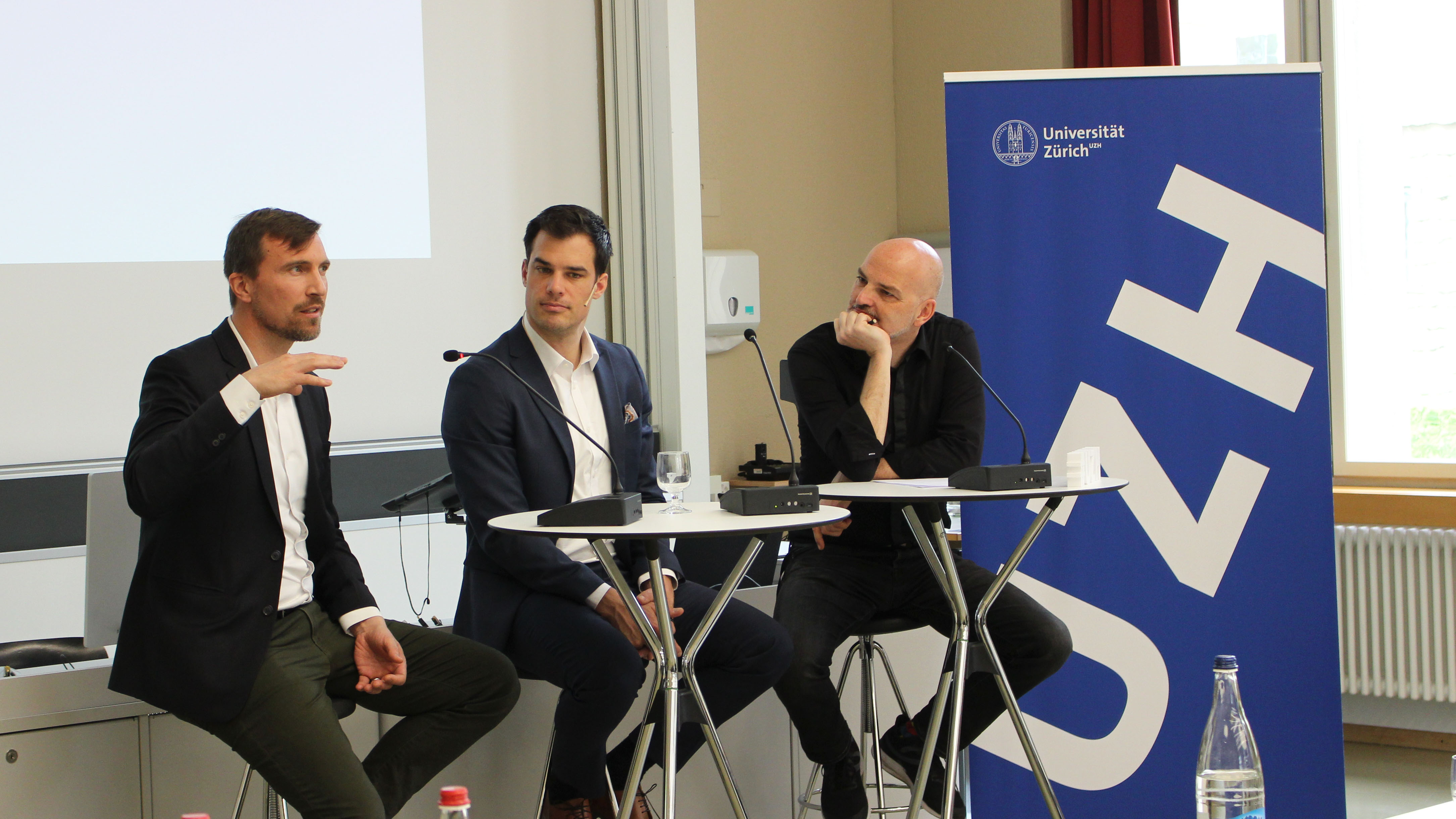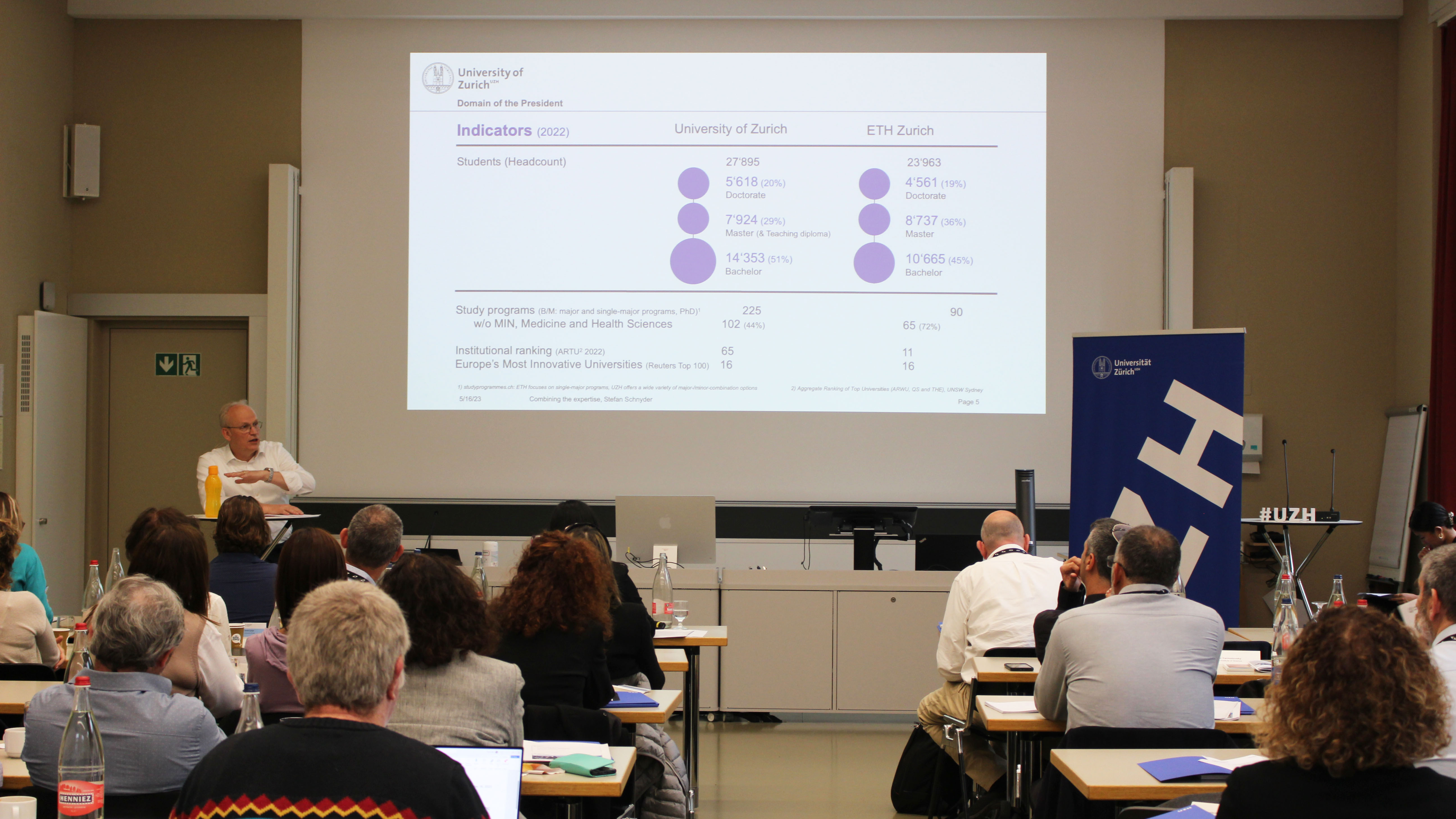Enabling Leadership in Academia
Higher Education Institutions in Switzerland and around the globe are facing considerable societal, technological, and political challenges. UZH welcomed a delegation of academic leaders from Israel to discuss possible solutions to these challenges, foster collaboration, and facilitate knowledge sharing.

Digitalization, new technologies, growing populations, resource competition, and changing student perspectives all demand strategic transformations at institutional levels. Strong leadership skills are crucial in this highly turbulent environment. Better integration and collaboration among academic and administrative aspects and capabilities are necessary. This need for leadership is emphasized by “Leadership in Academia”, an Israeli national initiative. It aims to promote leadership competencies in higher education institutions and is co-founded by the Rothschild Foundation and the Israeli Council for Higher Education.
A few days ago, UZH welcomed a delegation of the initiative, consisting of around 35 senior leaders from Academia from various Israeli universities. During a day filled with presentations of numerous UZH representatives and intense discussions, the delegation members were offered a glimpse into how UZH is tackling some of the major challenges that today’s higher education institutions are confronted with.
Leadership, self-reflection, and governance at UZH

Strategic transformation and adaptation of universities take place on a societal, institutional, and individual level. “There is a need for evidence-based self-reflection in science and the higher education system. Universities have to translate this reflection into practice, contributing to the ongoing professionalization of institutional structures”, said Professor Mike Schäfer, Director of the Center for Higher Education and Science Studies (CHESS). As a university-wide center of competence, CHESS consists of an interdisciplinary network of scholars and expert staff. It focuses on research, consulting services for stakeholders of the Swiss higher education system and offers continuing education programs for UZH employees and beyond. Furthermore, it engages with interested stakeholders through various outreach formats.
On an institutional level, governance structures provide the basis within which senior executives operate. Autonomy is a core element of UZH’s identity as a university. Michael Brändli, Head of Organizational Development, presented UZH’s recent two-year governance implementation program “Sustainable UZH Autonomy – Governance 2020+”. This program aims at increasing the faculties' organizational and management responsibilities and enhancing the strategic management capabilities of the Executive Board.
On an individual level, senior academics often find themselves in leadership positions, which require additional competencies. In 2022, the UZH Leadership and Governance Academy was founded as part of CHESS. The academy coordinates various continuing education programs and projects at UZH under one roof. It promotes new, innovative structures and encourages networking between executives. The aim is to create a common, university-specific understanding of leadership among all UZH members. According to Professor Jan Schmutz, universities must translate findings from leadership research to the academic context. Building on his applied research on teamwork and leadership, he explained how team familiarity, team reflexivity, psychological safety, and inclusive leadership can affect the performance of teams and job satisfaction.
Shaping the digital future of the university
Another focus topic of the day was how UZH tackles the challenges of digitalization in research and teaching. Professor Titus Neupert, Co-Director of the Digital Society Initiative (DSI), shared potential solutions for developing continuous development of digital capabilities university-wide. The DSI, with its interdisciplinary approach, connects all seven UZH faculties. It supports research, educational programs, and strategic outreach at various levels, such as artificial intelligence, cybersecurity, and digitalized communication
Furthermore, Dr. Thomas Hidber, Head of Educational Development, highlighted how UZH is addressing the changing expectations of students and graduates in its teaching approaches. UZH recognizes the importance of serving as a societal role model, emphasizing the cultivation of "future skills." These skills encompass critical reflection on the development and impact of information technologies, among other aspects, to ensure a comprehensive education.
Equality and diversity: What does it mean for academia?
In the context of equality and diversity, Dr. Christiane Löwe, Head of the Office for Gender Equality and Diversity, shared perspectives on various UZH initiatives. One significant challenge faced by academic institutions around the world is the “leaky pipeline” phenomenon, which refers to the progressive decline of women’s participation in STEM fields at different stages of their careers (World Intellectual Property Organization, 2023). In order to counteract this trend, UZH as the Leading House, and together with all other Swiss universities, participates in the Federal program “H.I.T.: High Potential University Leaders Identity & Skills Training”. The program aims to empower and train female professors across Switzerland to become academic leaders, focusing on networking, training, coaching and leadership development.
What does equality and diversity mean for academia? Dr. Christiane Löwe, emphasized the importance of data analysis as a foundational step. By understanding the data, effective tailor-made measures can be implemented. Equality and diversity in higher education institutions also require ongoing cultural change, for example through the establishment of inclusive language and diversity training.

Enabling excellence in research
UZH is strong in many fields of research and innovation. Together with Dr. Lisa Müller, Head of Research & Grants Office, and Agatha Keller, Co-Lead of the EU Grants Access office, the delegation members discussed UZH’s strategy in promoting research and its quality, as well as ensuring access to funds, especially in the context of the non-association to Horizon Europe.
Another aspect of particular interest to the delegation was the promotion of interdisciplinarity. To underpin its position among the world’s leading research institutions, the university has established its University Research Priority Programs (URPP). The URPP creates and promotes interdisciplinary academic networks in selected focal areas and contributes to advancing knowledge in research fields that benefit society.
Combining the expertise: UZH & ETH

UZH and its neighbor ETH Zurich maintain a strong, historically developed institutional partnership in teaching and learning, research and innovation as well as in campus services. Isabella Martini, Community Manager at the Wyss Zurich Translational Center, represented one example of this excellent institutional collaboration in the field of innovation promotion, which is characterized by a unique accelerator structure.
Stefan Schnyder, a former member of the Executive Board of UZH and now Senior Advisor to the UZH President Professor Michael Schaepman, stated: “UZH and ETH share the idea of the 3Cs: Competition, collaboration, coexistence. The fundamental willingness to cooperate, and the existing basis of trust have contributed to the fact that UZH and ETH have developed a strong partnership ‘at eye level’ over many decades.”
Leadership in academia in Switzerland, Israel, and beyond
Despite the differences in culture and higher education systems, both UZH and the Israeli representatives agreed on the importance of establishing eco-systems that enable senior academics and administrators to skillfully assume leadership roles in their institutions. The discussions between Israeli academic leaders and UZH experts made it clear that higher education institutions must bolster their leadership capabilities in response to the changing environment and evolving societal demands. This foundation is to align academic excellence with the university's societal responsibility and, ultimately, to contribute to collective welfare.
Viviane Gao